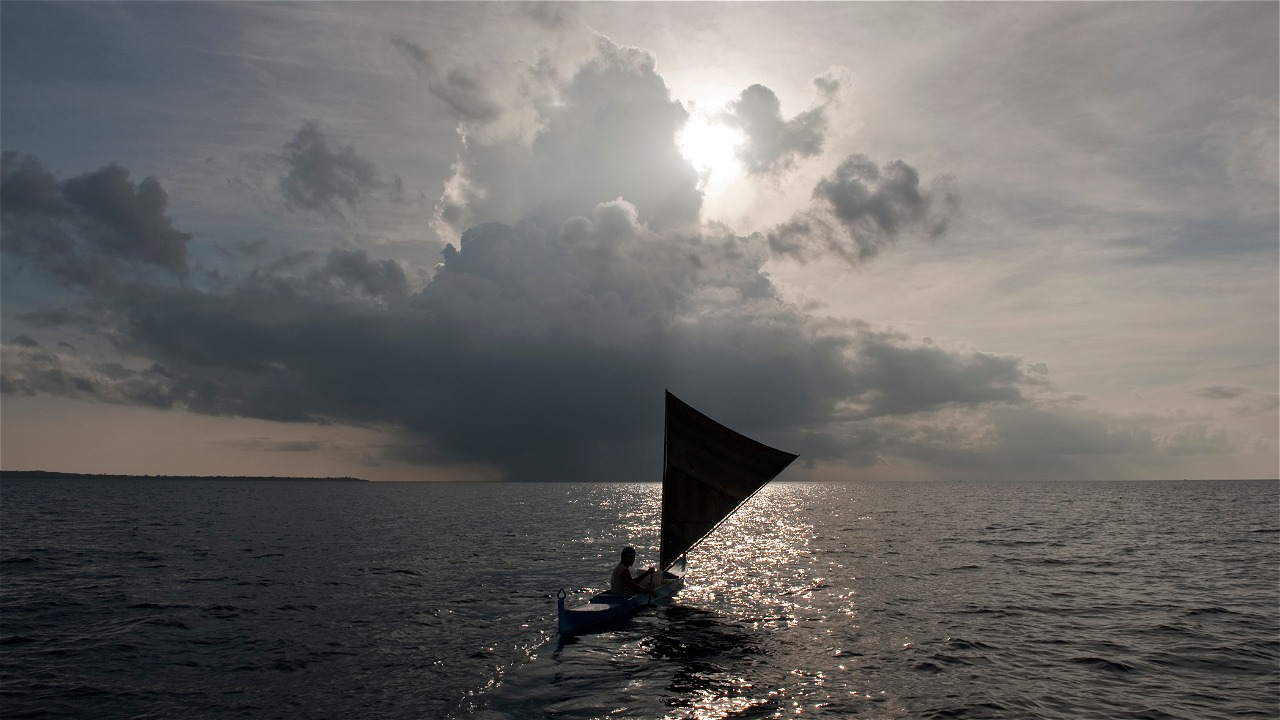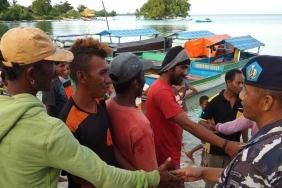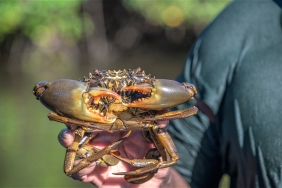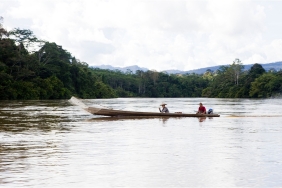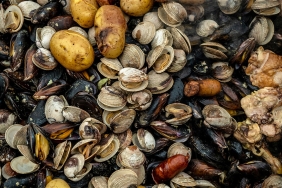EFFORTS TO MAINTAIN THE SUSTAINABILITY OF THE WAKATOBI REEF FISHERY
Author: Anastalia Adelady (Fisheries Business Officer, WWF-Indonesia Program Southern-Eastern Sulawesi Subseascape/SESS)
Reef fish is one of the important fisheries resources, both economically and ecologically. Economically, reef fish is a trade commodity and has long been a source of livelihood for fishermen. Ecologically, the habitat of coral reef ecosystems and reef fishes is the most important area as a chain of marine water productivity.
The most utilized reef fisheries commodities are grouper (Grouper) and snapper (Snapper). These fish species have a relatively higher selling price compared to other reef fish species and there are no fishing restrictions in terms of legislation. Exploitation fishing pressure that can lead to overfishing and destructive fishing methods are the main problems in coral fisheries management. Damage to coral reef ecosystems will result in reduced reef fish resources and the economy of fishermen will be reduced.
WWF-Indonesia's Southern-Eastern Sulawesi Subseascape/SESS Program supports and assists the community to make fisheries practices more environmentally friendly. One form of this is through training on the implementation of BMP-Better Management Practices-Fish. This training activity held in Wakatobi has the main objective of strengthening the capacity of groups as members of JARING-Nusantara in developing sustainable fisheries (Read also Introducing JARING-Nusantara, An Initiative for Sustainable Fisheries Practices). The BMP training was attended by members of the Antapulo group and representatives from the Wakatobi Marine and Fisheries Agency (Dinas Kelautan dan Perikanan/DKP Wakatobi) and was provided by WWF-Indonesia SESS Program staff Anastalia Adelady. This activity took place on June 21, 2016 and was held at the Antapulo Secretariat, Bahari Village, East Tomia District.
In her presentation, Adel - Anastalia Adelady's nickname - explained that the high demand for reef fish has caused fishermen to fish continuously without regard to fisheries sustainability and catch reef fish for all sizes of fish. About 15 years ago, reef fish did not have a selling value so the stock was still widely available in nature. However, along with the development of the times, the market demand for reef fish is very high, which encourages fishermen to fish continuously, both using fishing gear and destructive fishing. Munawir-one of WWF-Indonesia's Fisheries Science team members-also added that many fishermen still think that fish will never run out. However, based on experience, currently fishermen have felt several conditions that are indicators of the declining status of fisheries stocks, such as the number of fish caught is getting smaller, the size of the fish caught is getting smaller, and the distance to find fish is getting farther. Therefore, after this training, fishermen are expected to be wiser in catching fish by not catching spawning fish and at least catching fish that have spawned, which is >600 gr in size for the sustainability of fisheries in Wakatobi.
The Antapulo group, which is the target of WWF-Indonesia SESS Program assistance, is a group incorporated in UD Pulau Mas, a company that is a member of Seafood Savers (Visit http://www.seafoodsavers.org/ for information about sustainable fisheries business). This group has contributed a lot to the implementation of sustainable fisheries on Tomia Island in implementing the minimum catch size of reef fish. In addition, the Antapulo group also contributes as a member of the water area watchdog against fishermen who do illegal fishing.
WWF-Indonesia SESS Program is committed to supporting fisheries management through mentoring and strengthening the Antapulo group, which is contained in the preparation of a work plan based on the principles of the Fisheries Improvement Program (FIP) and recording catches with a logbook. This is done as a first step to build cooperation with market networks that are currently asking for environmentally friendly fishery products.

